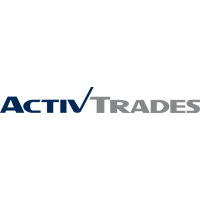Don’t even bother to check the five-year charts for AstraZeneca (LSE:AZN). If you want to see the big picture, you have to go back more than twice that amount of time to see that the AZN’s share price reached an 11 year high today as is soared by 107.50 pence (3.14%) to 3537.00 this morning.

The apparent catalyst for the sharp takeoff was the announcement that the pharmaceutical giant has acquired “Omthera Pharmaceuticals, inlcuding (their) NDA-ready novel Dyslipidemia Treatment to complement cardiovascular portfolio.” AstraZeneca will purchase Omthera for a cash price of approximately $323 million, or about $12.70 per share. Omthera’s share price closed at $6.77 on Friday, 24 May on the NASDAQ. U.S. stock markets and banks were closed yesterday for the Memorial Day holiday. And, by the way, in case you think that the numbers you just read are a typo, they are not. AZN is paying what amounts to almost a 90% premium per share.
But wait! There’s more!
The agreement also includes contingencies that could pay Omthera shareholders up to an additional $4.70 per share, which would boost the total sale price to as much as $443 million.
According to Omthera’s website, (Omthera’s actually logo name is Ωmthera) the company is only five years old and has only one product candidate, Epanova, which is the dyslipidemia treatment mentioned in the second paragraph. “Epanova is a coated soft gelatin capsule containing a complex mixture of polyunsaturated free fatty acids derived from fish oils, including multiple long-chain omega-3 and omega-6 fatty acids, with eicosapentaenoic acid, or EPA, docosahexaenoic acid, or DHA, and docosapentaenoic acid being the most abundant forms of omega-3 fatty acids.” Or, in more conventional language, it is a proven treatment for patients whose lipids need to be better controlled, especially where the underlying problem is high triglycerides.
The timing of the consummation of the purchase agreement should closely align with the FDA approval of Epanova for commercialization. The company will seek approval as both a stand-alone treatment and for use in combination with AstraZeneca’s leading cholesterol medication, Crestor. Strategically, AZN will become better positioned to compete against rivals such as Pfizer, GSK, and Amerin in the growing market of patients who are battling high triglycerides.
One analyst cited the acquisition as “a good move as it perfectly complements AstraZeneca’s cardiovascular portfolio.” AZN has seen declining sales and profits in recent years as a number of its patent drugs have either lost exclusivity, e.g., Seroquel, and others, like Crestor, are losing ground to competitors’ drugs that have already gone generic.
There may be no greater commercial battle ground than pharmaceuticals. It is an arena where successes in research, regulatory approval, and commercialization must come in a steady stream, and in which each company must be much more keenly aware of how its competitors are positioned and what they are doing. If business in general were a chess game, the pharmaceutical sector would be like speed chess – on steroids.
Pascal Soriot, AZN CEO, said, “The number of people with elevated triglyceride levels is rising rapidly across the world, due in part to the increasing prevalence of obesity and diabetes. Epanova offers real potential . . . for patients at high risk of adverse cardiovascular events. This is an exciting acquisition that clearly complements our existing portfolio in cardiovascular and metabolic disease, one of our core therapy areas.”


 Hot Features
Hot Features













